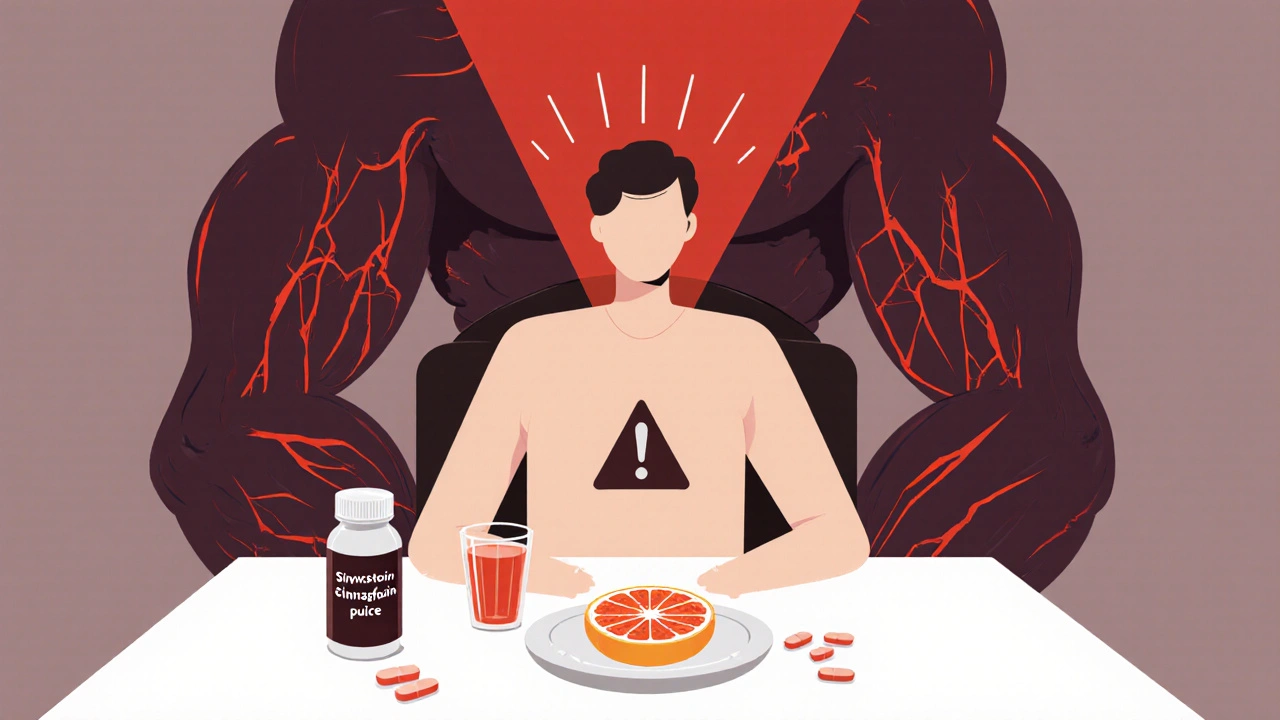Simvastatin Side Effects: What You Need to Know Before Taking It
When you take simvastatin, a cholesterol-lowering drug in the statin class used to reduce the risk of heart attack and stroke. Also known as Zocor, it works by blocking a liver enzyme that makes cholesterol. But like all medications, it doesn’t come without trade-offs. Millions use it safely, but thousands experience side effects — some mild, others serious enough to stop treatment.
One of the most common complaints is muscle pain, a dull ache or weakness that often starts in the legs or shoulders. It’s not always a sign of danger, but if it’s new, worsening, or paired with dark urine, it could be rhabdomyolysis, a rare but life-threatening breakdown of muscle tissue that can damage kidneys. Studies show this risk goes up if you’re over 65, have kidney problems, or take simvastatin with certain other drugs like fibrates or some antibiotics.
Another hidden risk is liver enzyme changes, a silent effect that shows up only on blood tests. Your doctor should check your liver function before you start and again a few months later. If levels rise too high, they’ll likely switch you to another statin or lower the dose. Don’t ignore routine blood work — this isn’t just paperwork, it’s your safety net.
Some people report digestive issues, like nausea, constipation, or stomach cramps, but these usually fade after a few weeks. Others notice memory fog or trouble sleeping — reports are mixed, but if you feel different mentally after starting simvastatin, it’s worth mentioning. It’s not in every label, but enough people report it that doctors now ask about it.
And don’t forget drug interactions, the silent trigger behind many bad reactions. Grapefruit juice is the big one — even one glass can spike simvastatin levels in your blood. So can certain antifungals, some HIV meds, and even over-the-counter supplements like St. John’s wort. If you’re on more than one pill, talk to your pharmacist. They see the full picture.
What you won’t find on the bottle? The fact that side effects often drop off after the first three months. Many people quit too soon because they feel weird at first — but their body adapts. On the flip side, if you’ve been on it for years and suddenly feel tired or sore, don’t brush it off. That’s your body signaling something’s changed.
There’s no one-size-fits-all answer. Some people take simvastatin for decades with zero issues. Others can’t tolerate even the lowest dose. The key is knowing your body, tracking symptoms, and speaking up — especially if you’re on multiple meds or have other health conditions. The posts below dig into real cases, alternative options, and how to spot the red flags before they become emergencies.
Grapefruit juice can dangerously increase simvastatin levels in the blood, raising the risk of muscle damage and kidney failure. Learn how much is unsafe, which statins are safer, and what symptoms to watch for.
Nov, 22 2025

